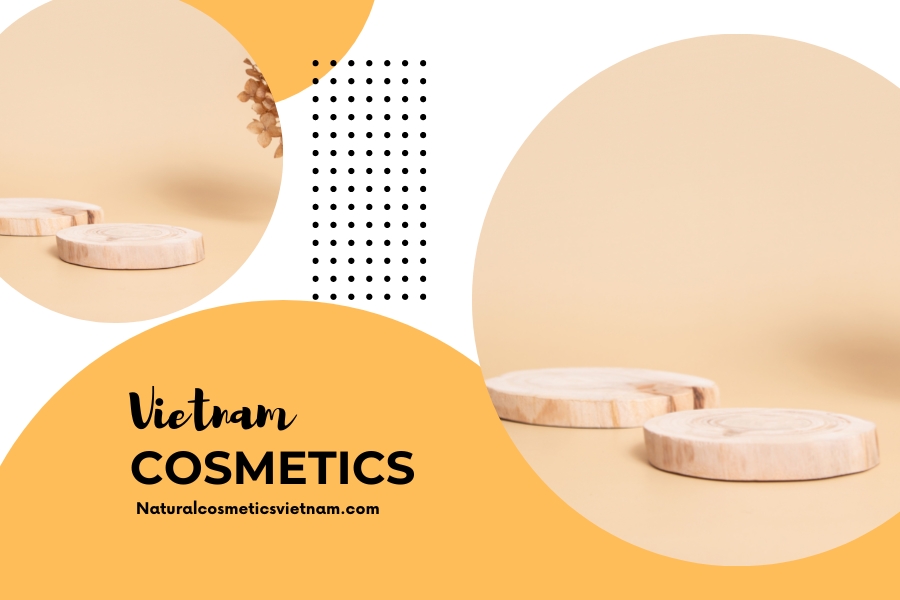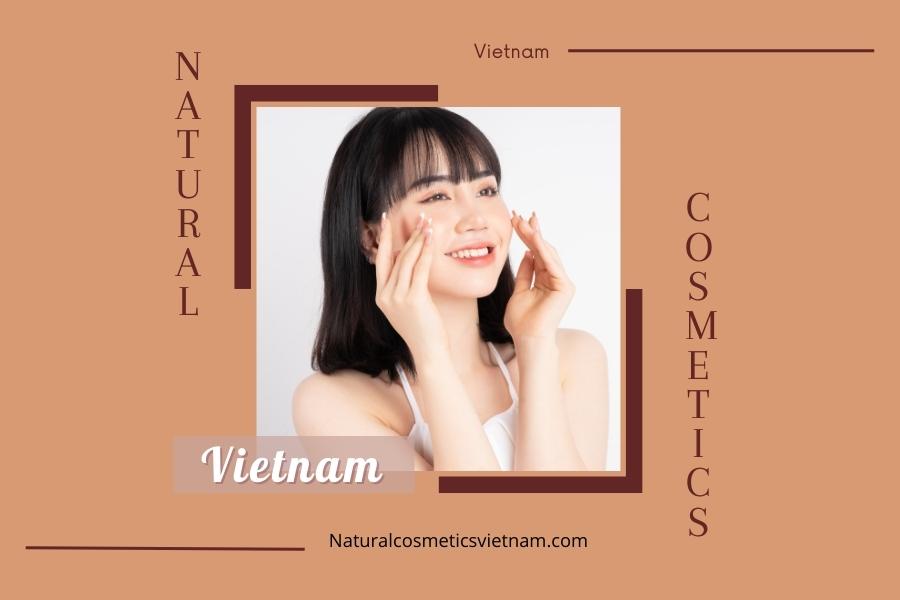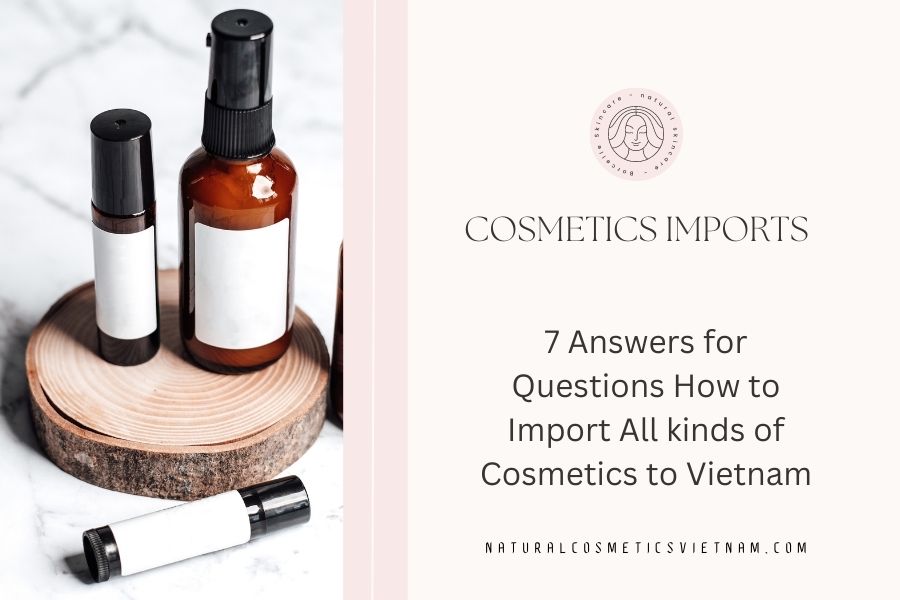Cosmetics are products that are used to enhance one’s appearance, improve hygiene, and provide personal care. The cosmetic industry is a rapidly growing industry worldwide, and Vietnam is no exception. As the standard of living continues to increase in Vietnam, so does the demand for high-quality cosmetics. This has led to the emergence of several cosmetic manufacturing companies in the country. If you are looking to start a cosmetic manufacturing company in Vietnam, there are several procedures you need to follow.

Natural Cosmetics Vietnam: Procedures for setting up a cosmetics manufacturer in Vietnam

Natural Cosmetics Vietnam: Procedures for setting up a cosmetics manufacturer in Vietnam
Overview
Get a Business License
The first step in establishing a cosmetic manufacturing company in Vietnam is to obtain a business license. This can be done through the Department of Planning and Investment in the province where you plan to operate. You will need to provide details such as the company name, business activities, location, and ownership structure. Once the license is approved, you can proceed to the next step.
Register for a Manufacturing License
The next step is to register for a manufacturing license. This is done through the Ministry of Health, and it involves providing information about the products you plan to manufacture, the manufacturing process, and the quality control measures you will have in place. You will also need to submit samples of the products for testing and evaluation. Once your application is approved, you will be issued with a manufacturing license.
Obtain a Certificate of Free Sale
A Certificate of Free Sale is a document that confirms that your products are safe and meet the necessary quality standards. To obtain this certificate, you will need to submit your manufacturing license, product samples, and other relevant documents to the Ministry of Health. The certificate is issued by the Department of Medical Equipment and Health Works.
Register for Product Registration
All cosmetic products must be registered with the Ministry of Health before they can be sold in Vietnam. This involves providing details such as the product name, ingredients, labeling, and packaging. You will also need to submit samples of the products for testing and evaluation. Once your application is approved, you will be issued with a product registration certificate.
Set up a Manufacturing Facility
To manufacture cosmetic products, you will need to set up a manufacturing facility that meets the necessary standards. This includes having appropriate equipment, facilities, and quality control measures in place. The facility will need to be inspected and approved by the Ministry of Health before you can begin production.

Natural Cosmetics Vietnam: Procedures for setting up a cosmetics manufacturer in Vietnam
Hire Qualified Personnel
To ensure the quality and safety of your products, you will need to hire qualified personnel such as chemists, pharmacists, and quality control specialists. These individuals will be responsible for formulating the products, overseeing the manufacturing process, and ensuring that the products meet the necessary quality standards.
Adhere to Good Manufacturing Practices (GMP)
Good Manufacturing Practices (GMP) are a set of guidelines that ensure that cosmetic products are manufactured in a safe and hygienic environment. These guidelines cover aspects such as personnel hygiene, equipment maintenance, and product testing. Adhering to GMP is essential to ensure that your products meet the necessary quality standards.
Conclusion
Starting a cosmetic manufacturing company in Vietnam requires a lot of effort and dedication. However, with the right procedures in place, it can be a rewarding venture. By following the steps outlined above, you can establish a successful cosmetic manufacturing company that meets the growing demand for high-quality cosmetics in Vietnam.
Cosmetics industry must ensure health and safety standards
The cosmetic industry is rapidly growing in Vietnam, with various successful start-ups in the organic and natural cosmetics fields. However, the increasing demand for cosmetics has also led to the emergence of fake cosmetic factories, commonly referred to as “mixing creams.” This has resulted in a growing preference for foreign cosmetics among Vietnamese consumers, who prioritize quality and brand reputation.

Natural Cosmetics Vietnam: Procedures for setting up a cosmetics manufacturer in Vietnam
To establish a successful cosmetic manufacturing enterprise in Vietnam, it is crucial to adhere to the laws and regulations governing the industry. In particular, foreign enterprises must prioritize building a strong reputation with consumers. The Vietnamese government has enacted laws and regulations to regulate the cosmetic manufacturing industry, which are outlined in Law No. 03/2016/QH14 and Decree 93/2016/ND-CP.
These laws provide a list of conditional investments and business requirements for the industry, outlining specific regulations and standards that must be met. Enterprises must be familiar with these laws and regulations to ensure compliance and build consumer trust. By prioritizing quality, safety, and transparency, enterprises can establish a positive reputation and gain the trust of Vietnamese consumers.
In conclusion, the cosmetic industry in Vietnam is growing rapidly, but it is essential to establish a reputable enterprise that adheres to the laws and regulations governing the industry. By prioritizing quality and transparency, enterprises can build consumer trust and establish a positive reputation in the market.
Procedures for setting up a cosmetics manufacturer in Vietnam
Prepare the enterprise establishment profile
To establish a cosmetic manufacturing company in Vietnam, enterprises must prepare a complete profile, including the following documents:
- An application for enterprise registration
- Enterprise regulations
- A list of shareholders for joint-stock companies or a list of members for limited liability companies
- A notarized copy of the identity card or passport for individual members/shareholders
- A notarized copy of the enterprise registration certificate for the organization’s legal representative
- A commission paper for a reputable law firm
- Any other necessary documents

Natural Cosmetics Vietnam: Procedures for setting up a cosmetics manufacturer in Vietnam
Once the profile is complete, it must be submitted to the Department of Planning and Investment where the head office is located. The processing time for documents is typically three to six working days. Upon completion of the registration process, the enterprise will receive a business registration certificate.
By following these procedures, enterprises can establish a cosmetic manufacturing company in Vietnam and begin producing high-quality cosmetics to meet the growing demand in the market. It is important to ensure that all necessary documents are prepared and submitted on time to avoid any delays in the registration process.
Publication of business registration information
When a cosmetic manufacturing company is registered in Vietnam, its business registration information must be publicly announced on the National Business Registration Portal. This information is typically published within 30 days of the issuance of the company’s registration certificate.
The publicly available information includes details about the cosmetic manufacturing company’s registration certificate, which provides essential information about the business, such as its legal name, address, ownership structure, and other pertinent details. By making this information readily available to the public, it promotes transparency and helps to build trust with potential customers and investors.
It is essential for cosmetic manufacturing companies to comply with the regulations governing business registration in Vietnam. By doing so, they can establish a positive reputation and build a foundation for long-term success in the market.
Apply a stamp and post a sample stamp
To establish their legal seal, cosmetic manufacturing companies in Vietnam have two options. They can either create their own seal or grant authorization to a law firm to complete the process on their behalf.
If the company chooses to create their seal, they will need to submit a sample to the Department of Planning and Investment for approval. Once the approval process is complete, the Business Registration Office will issue a receipt confirming the company’s right to use the seal. The Business Registration Office will then post information about the seal sample on the National Portal and issue a notice to the cosmetic manufacturing company, indicating that the seal is officially recognized.
Alternatively, companies can authorize a law firm to complete the seal registration process on their behalf. This will involve submitting the necessary documentation and seal sample to the Department of Planning and Investment. Once the registration process is complete, the law firm will notify the company of the effectiveness of the seal sample, and the Business Registration Office will issue a receipt confirming the company’s right to use the seal.
By completing the seal registration process, cosmetic manufacturing companies in Vietnam can establish a legal seal that can be used for various business purposes. This helps to promote transparency and credibility, while also ensuring that the company is in compliance with legal requirements.

Natural Cosmetics Vietnam: Procedures for setting up a cosmetics manufacturer in Vietnam
Apply for a cosmetics production license
For a cosmetic manufacturing establishment to operate in Vietnam, it must adhere to specific conditions that ensure the safety and quality of its products. These conditions include:
Human Resources
To ensure the quality of the manufacturing process, employees in charge of production must possess a deep understanding of the cosmetic industry, including knowledge of chemistry, biology, pharmacy, and related subjects.
Material Facilities
Manufacturing establishments must have proper infrastructure, including manufacturing plants and high-quality factories that meet equipment requirements for the cosmetic manufacturing line. Warehouses for packaging materials and finished products must also be available, and cold storage warehouses are needed to preserve products. Additionally, a separate area for conserving flammable and explosive substances, highly toxic substances, rejected, recovered, and returned products is required.
Quality Management System
Raw materials and secondary materials must meet quality standards and comply with the law. Water treatment systems and water used in production must be distributed clearly. Detailed production separation must be executed, and a department must check the quality of raw materials and finished products to protect the brand before the law.
A Certificate of Eligibility for Cosmetic Manufacturing

Natural Cosmetics in Vietnam: Expectations of Vietnamese Consumers from Cosmetic Brands
To obtain a Certificate of Eligibility for Cosmetic Manufacturing, enterprises must submit an application following Form No. 02, diagrams of the premise and designs of production facilities, a list of existing equipment, and a list of manufacturing or expected commodities, including the quality standards of each item.
The Department of Health is responsible for inspecting the production facility within 30 days of receiving a valid document. If the facility meets the requirements, a Certificate of Eligibility for Manufacturing will be issued. If the facility does not meet the requirements, the Department of Health will provide written notification and clear reasons.
By adhering to these conditions and obtaining the necessary Certificate of Eligibility, cosmetic manufacturing establishments in Vietnam can ensure they are operating safely and legally, meeting the growing demand for high-quality cosmetic products.

Natural Cosmetics Vietnam: Vibrant cosmetics market in Vietnam














Leave a reply